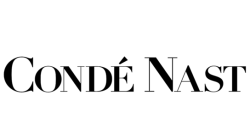Top Class Actions’s website and social media posts use affiliate links. If you make a purchase using such links, we may receive a commission, but it will not result in any additional charges to you. Please review our Affiliate Link Disclosure for more information.

Unfortunately for others who are not sure if their unpaid internship meets federal or state requirements, the settlement only governs this case. In fact, U.S. Magistrate Judge Henry Pitman already noted that others had faced difficulty and that, “Given the unsettled state of the law applicable to this case and the risks inherent in this action, a recovery rate of 60% is well above the lowest point of the range of reasonableness.”
In the Condé Nast class action lawsuit, the plaintiffs alleged that while they had applied for unpaid internships at one of various Condé Nast publications, in fact they were working as employees and therefore entitled to minimum wages at the bare minimum. Other cases regarding the same issue are already on appeal and such a decision “may have a devastating effect on one side’s opinion,” Judge Pitman wrote.
The preliminarily approved Class includes “all individuals who had an internship in New York State at Condé Nast between June 13, 2007 and the date of this Order[,]” or Dec. 29, 2014, for state law violations and another for those who had an internship beginning in June 13, 2010 based on Fair Labor Standards Act violations alleged in the unpaid internship class action lawsuit.
Class Members of the Condé Nast unpaid internship class action settlement are expected to receive between $700 and $1,900 from the deal. A fairness hearing has been scheduled for June 22, 2015.
Unpaid internships have become a critical part of the New York media world, which is why the three recent cases are important. Gawker has also faced a similar unpaid internship class action lawsuit, as have other publishers of various sizes. The key legal question, and one where the Department of Labor has issued guidelines but where the courts have not decided, is what constitutes proper training.
According to the Department of Labor and the New York state equivalent, trainees must learn key tasks and do so without producing revenue for the company where they are interning. According to the myriad unpaid internship class action lawsuit plaintiffs, they are responsible for duties that they would be able to pick up “on the job” and receive no other special training during their time there.
The Class is represented by Rachel M. Bien, Juno E. Turner, Michael N. Litrownik, Adam T. Klein and Paul W. Mollica of Outten & Golden LLP.
The Condé Nast Unpaid Internship Class Action Lawsuit is Lauren Ballinger v. Advance Magazine Publishers Inc., Case No. 13-cv-04036, in the U.S. District Court for the Southern District of New York.
ATTORNEY ADVERTISING
Top Class Actions is a Proud Member of the American Bar Association
LEGAL INFORMATION IS NOT LEGAL ADVICE
Top Class Actions Legal Statement
©2008 – 2024 Top Class Actions® LLC
Various Trademarks held by their respective owners
This website is not intended for viewing or usage by European Union citizens.














